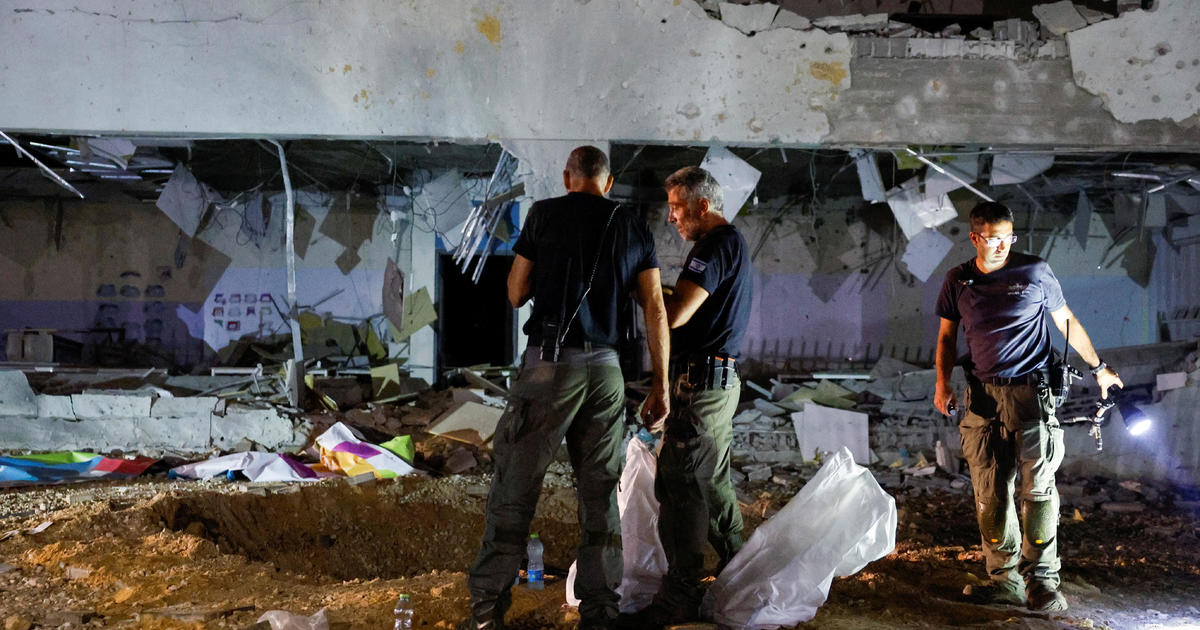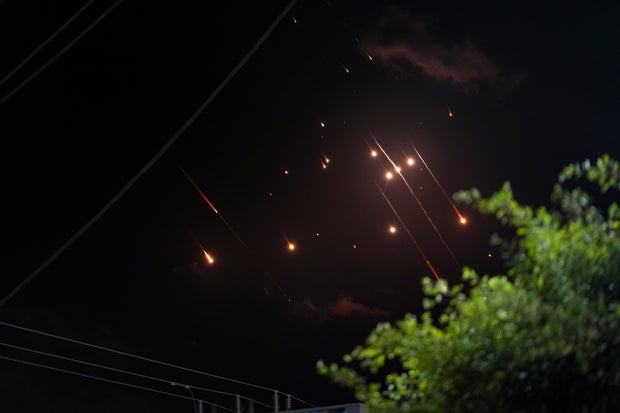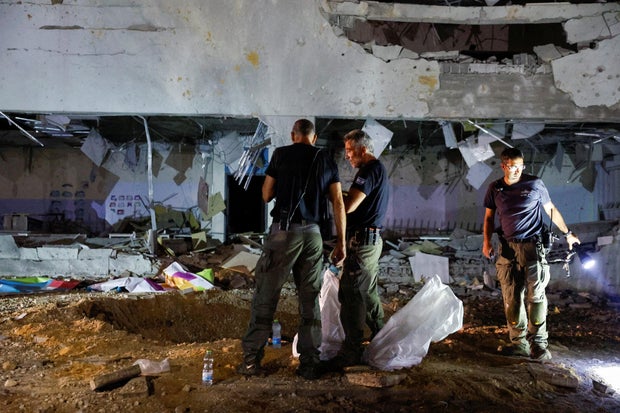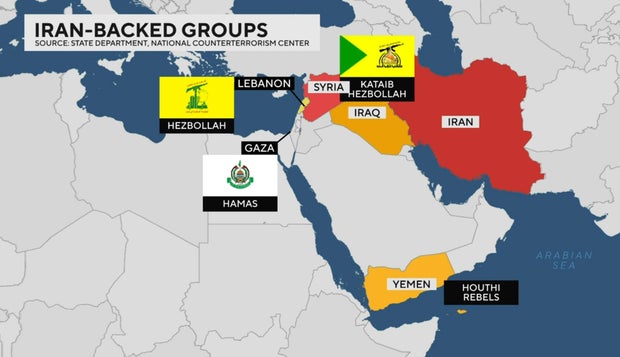Tel Aviv — Prime Minister Benjamin Netanyahu vowed retaliation for Iran’s missile attack against Israel, saying Tehran would “pay for it.”
“The regime of Iran does not understand our determination to defend ourselves,” Netanyahu said in a statement delivered shortly after the attack, which came on the eve Rosh Hashanah, the Jewish New Year. “They will understand. We will stand by the rule we established: Whoever attacks, we will attack them.”
Iran launched at least 180 ballistic missiles toward Israel Tuesday evening, prompting alerts for people to take shelter across the country. The missiles were seen entering Israeli airspace from Tel Aviv to Jerusalem.
Abdel Kareem Hana / AP
Israel Defense Forces spokesperson Rear Adm. Daniel Hagari said many of the missiles were intercepted by Israel’s air defense systems, though some landed in southern and central Israel.
The U.S. helped Israel defend against Iran’s attack. In a statement late Tuesday night, Defense Secretary Lloyd Austin said, “U.S. forces in the Middle East intercepted multiple missiles launched by Iran toward Israel,” calling it an “outrageous act of aggression by Iran.”
About 45 minutes after the attack began, and after multiple waves of interceptions, people were given the all-clear to leave their shelters.
Amir Cohen/REUTERS
Rescue services in Israel said two people were wounded by shrapnel, though their wounds were not serious. Palestinian authorities in the West Bank said one Palestinian man was killed by a missile that landed in Jericho, though it wasn’t clear where the missile came from, The Associated Press reported.
Why Iran says it attacked Israel
Iran’s mission to the United Nations, in a statement issued shortly after the attack on Israel, called it a “legal, rational, and legitimate response to the terrorist acts of the Zionist regime — which involved targeting Iranian nationals and interests and infringing upon the national sovereignty of the Islamic Republic of Iran.”
Israel has carried out numerous airstrikes in southern Lebanon and Beirut in recent days, killing the leader of its proxy group, Hezbollah, Hassan Nasrallah, and causing a million people in Lebanon to be displaced from their homes, according to Lebanon’s prime minister. Earlier on Tuesday, Israel said it had also launched a limited ground incursion into southern Lebanon.
The powerful Iranian Revolutionary Guard Corps later called the missile barrage a specific retaliation for Israel’s assassination of Ismail Haniyeh, the long-time political leader of Hamas who was killed in a strike in Tehran after he attended the inauguration of the new Iranian president in late July, and the killing of IRGC commander Abbas Nilforoshan in Beirut in late September.
What happens next?
The IRGC added a warning to Israel, saying if it “reacts to Iran’s operations, it will face crushing attacks.”
The joint chief of Iran’s armed forces, Maj. Gen. Mohammad Bagheri, said Tuesday that any further retaliatory actions against Iran would be met with attacks on Israeli infrastructure.
“If [Israel]… wants to continue these crimes or wants to do anything against our sovereignty and territorial integrity, tonight’s operation will be repeated several times stronger and all their infrastructure will be targeted,” Bagheri said, according to CBS News partner network BBC News.
It was unclear Wednesday how Israel would respond to the Iranian missile attack. It said only that it would act at a time and place of its choosing.
CBS News
Concern was rising fast, however, that whatever it does next could fuel a spread of the already deadly fighting between Israel and Iran’s proxy groups in Gaza and Lebanon into a wider war in the region, where some 40,000 U.S. troops are deployed.
“I condemn the broadening of the Middle East conflict with escalation after escalation,” United Nations Secretary-General Antonio Guterres said Tuesday after Iran’s missile attack. “This must stop. We absolutely need a ceasefire.”
contributed to this report.



